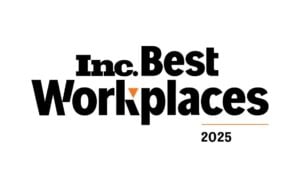Wikipedia has been called many things, but easy to edit is not one of them. Easy to read, yes. But if you’ve got the urge to help improve a page and want to move beyond reading, things grow complicated. Especially if the page you want to edit is one that you are personally affiliated with – a Wikipedia article about your brand, company, product, or CEO.
Why? Isn’t Wikipedia free to the public? Can’t you edit the page about your company as you please, and make it look exactly as it should?
You can try, but this could be the result:

Ouch.
The answer behind why self-editing is disastrous is long and complicated. Lucky for you, we put together this guide to help. To get started, what you need to know is this: when it comes to editing your own pages, you have to know how to use the talk page if you want your edits to be accepted and have the best chance of remaining on the page. Let’s get into why.
Table of Contents
Why is Wikipedia Important to Your Online Presence?
Let’s start with why we care about Wikipedia:
- It almost always ranks in the top 3 on Google for any keyword, person, or place
- Siri and Alexa both use Wikipedia to populate answers to voice searches
- It is a definitive resource for consumers, investors, employee candidates, and the press
- Your Google knowledge panel description comes straight from your Wikipedia page
- LLMs, including ChatGPT and Gemini, use Wikipedia extensively
The information on a Wikipedia page is highly visible and influential. If there’s certain information that you want people to find on the internet, start with your Wikipedia page.

What are the Official Rules of Wikipedia?
Talk pages were born from Wikipedia’s five core principles:
1. Wikipedia is an encyclopedia
2. Wikipedia is written from a neutral point of view
Wikipedia strongly discourages Conflict of interest (COI) editing, which “involves contributing to Wikipedia about yourself, family, friends, clients, employers, or your financial and other relationships…COI editors are strongly discouraged from editing affected articles directly, and can propose changes on article talk pages instead.”
3. Wikipedia is free content that anyone can use, edit, and distribute
This makes it highly likely that one page will attract multiple editors with different opinions as to what content should be included and/or how it should be included.
4. Wikipedia’s editors should treat each other with respect and civility
Editors who continuously ignore this core principle can be banned. To give people a chance to share their opinions and work together on a page, talk pages are necessary.
5. Wikipedia has no firm rules (but instead has policies and guidelines that are not carved in stone)
Because Wikipedia’s guiding principles are interpreted differently by different editors at different times, Wikipedia recognizes that there must be a way for editors to talk to one another so that each page reflects a balanced, neutral consensus.
Making sure that these conversations take place in an open forum – where everyone can see what was said and who said it – is also essential to the platform’s driving philosophies. Remember: Talk page content is saved forever and visible to anyone on Wikipedia.
How Wikipedia Can Ruin Your Day
We’ve talked about how influential and important Wikipedia is, and how there are many voices and opinions involved in creating and maintaining each page.
These can lead to some serious headaches. Be aware that:
- Wikipedia is edited every 2 seconds. An article can change at any time. Yes, this includes at 2 A.M. during a holiday. Pages are never set in stone.
- False and biased information can be added at any moment. That information then quickly makes its way around the internet thanks to the services that depend on Wikipedia (Google search, ChatGPT, Siri, etc).
- Company-wide controversies can quickly take center stage on a page, overshadowing all other copy.
- The editor community is not always welcoming to business and business-related topics. While everyone is supposed to assume good faith and only write in a neutral manner, business-related articles come under closer scrutiny than many others.
If any one of these situations comes into play, you will need the talk page.
What is a Talk Page (and Why Do They Matter)?
Every Wikipedia article has a talk page. This even includes the main page on Wikipedia, administrative pages, and informational pages.

Clicking on the link on the top left of an article, takes you to a page where different editors are – you guessed it – talking about the content on the page.
You can see and join existing topics of conversation:

Or you can start a new topic:

Talk pages are used by editors to:
- Facilitate discussion
- Settle disputes
- Serve as historical record
- Notify readers and editors of important developments/conflicts with a page
- Solicit second opinions and build consensus
If two or more editors have strong opinions about what content should be included on a page, the talk page is a great place for them – and others – to come to a consensus before editing the page. The alternative is one editor making an edit, another editor reverting it, the first editor jumping back in – and the cycle repeats from there. It isn’t constructive and it only builds frustration.
Turning to the talk page and having a calm, respectful decision is the better path.
Wikipedia Editor Talk Pages
In addition to talk pages on articles, each Wikipedia editor has a profile page with a link to a talk page. This is a place where you can talk to this editor directly – perhaps you’ve noticed them editing pages within your area of interest and would like to chat about the pages, or you might want to ask them a question about a recent edit.
These talk pages are also places for Wikipedia to notify editors of activities, discussions, events, and initiatives they may find interesting, along with newsletters and other relevant content.


When You Need a Helping (Talk Page) Hand
If you have a COI for a certain page or sets of pages, you should go to the talk page if:
- The Wikipedia article you care about contains inaccurate or outdated information and you’d like help correcting the copy
- Infobox changes are needed: outdated photos, incorrect office location, executives, revenue, etc.

- Biased or misleading information is on the page and requires clarification
- New and notable information is not on the page
Rather than making these edits yourself, ask for assistance through the talk page. This prevents any COI editing and allows you to show good faith and good will towards Wikipedia and its policies. Other editors will appreciate you showing that you’ve taken the time to learn how Wikipedia operates and want to work within its guidelines.
Does Change Happen Quickly?
Edits on Wikipedia are not guaranteed to happen quickly. They might, but they also might not. It depends on a number of factors, including:
- How active is the talk page? Are other editors watching it, or could weeks go by before someone checks in?
- How contentious is the suggested change? How many editors are going to weigh in?
What people find contentious might surprise you. For example since 2007 there have been six nominations to move the contents of the Maize Wikipedia page to the Corn page. All six attempts, which have inspired incredibly lengthy discussions (some lasting for 2+ years), have ended without a consensus being reached.
If you aren’t a patient person, tap out and let someone else take over Wikipedia discussions. While most conversations don’t extend over years, you have to be prepared for a lot of back and forth.

Requesting Wikipedia Edits Through Talk Pages

Now that we’ve covered why Wikipedia is important, the reasoning behind talk pages, and what talk pages are, let’s walk through the steps of making a Wikipedia account, declaring a conflict of interest, and engaging on a talk page.
How to get started:
Step One
Your first step is to create a Wikipedia account. Your account name should contain your name and company name to be clearly identifiable for other editors and readers. Ex: JohnAtSunChips


As you’re deciding who should take the lead in working with Wikipedia to make page edits, now’s a good time to ask: does your company have a Wikipedia employee policy? Many companies have social media policies, but those policies often don’t include Wikipedia. If an employee tries to edit a company Wikipedia page in good faith, but doesn’t know about the COI guidelines and talk pages, they could inadvertently cause a big problem. Better to proactively create a policy and share it before there’s an issue.
Step Two
Create a User Page for your account and declare your conflict of interest.
Declaring a COI up front in accordance with Wikipedia policies establishes trust with Wikipedia, and ensures everyone that you are not editing for promotional reasons. Creating accounts with declared conflicts of interest is commonplace on Wikipedia, and follows an established policy. Using a clearly-defined username, declaring a COI on your user profile, and posting editing requests on the talk pages of relevant Wikipedia articles (rather than directly editing) are essential steps in ensuring compliance.
Undeclared COI - What Could Go Wrong?

The Wikipedia community is constantly on the lookout for COI editors. There is an entire noticeboard dedicated to just this effort. Not declaring a COI is a violation of Wikipedia policy.
When an editor with an undisclosed COI is identified, a few things happen.
1. The account (or IP address if someone edits without an account) will be banned.
2. All edits made will be reverted.
3. The page can be flagged, letting everyone know that the content on the page is considered suspect.


4. COI edits persist, the page can be given protected status. Page protections restrict who is allowed to edit a page, limiting it to only high-level editors. Even if you follow Wikipedia policies (create an account, declare your COI, use the talk page), you now must wait for one of these editors, and only one of these editors, to review your request and respond.

5. The page can be deleted.
Remember, Wikipedian administrators have a wealth of experience, along with many tools they can use, to unearth seemingly “normal” accounts with undisclosed COIs. There is nowhere to hide!

Posting to a Wikipedia Talk Page
After creating your account and user profile so that you don’t get called out for an undisclosed COI, here is how you post to a talk page.
1. Go to the article in question, and click on the link to the talk page.

2. Click on Add topic

3. Give your topic a subject. In the description, put {{edit COI}} at the very top. Use {{edit COI |N}} if you are unfamiliar with Wikipedia’s COI guidelines and other policies. Use {{edit COI |R}} if you are requesting significant changes. Additional details can be found here.
4. After entering that template, share what you would like changed or added to the page. Be very clear and use proper sourcing to back up your requests. Any claim made in a Wikipedia edit request must be validated through verifiable, third-party sources. If you have a lot you want changed or added, work slowly. Ask for only a few sentences at a time. This creates less work for other editors, who may be turned off by paragraphs of requests, and allows you to get more of a feel for which requests will be approved.

5. Before you submit, you must sign your request. Use ~~~~ at the end of your request. This will add a signature and time stamp. Without this, your request will either be auto-declined or ignored.
6. Once you add the topic, it will appear like this on the talk page:

How to Behave on Wikipedia Talk Pages
Your posts should always be respectful and calm. Things can get heated on talk pages, but bad behavior should never stem from you. You can always request another editor step in and mediate if things start to spiral out of control.
If you do find yourself in an argument and want to keep it civil, keep your dialogue within these green points. Straying into gray is considered acceptable, but anything in red is not.

Typical Outcomes of Talk Page Posts (High Level)
You can expect one of a few things to happen after you make your request:
- No response – Remember to be patient and don’t expect a response right away.
- Rejection – If a request is fully rejected, an editor will provide detailed feedback on why the decision was made, and/or what steps need to be taken for a more desirable outcome.
- Partial/full implementation – Congratulations! You’ve just had a pleasant Wikipedia reaction.
- The most common result – Debate. Knowing how to resolve a company’s request is not always obvious to Wikipedians, and getting stuck in endless discussion without action is common.
No matter which outcome you find yourself in, it’s important to remember that Wikipedia, by definition, is never complete. Therefore almost any edit made (or not made) to a Wikipedia page is not written in stone.
What to Expect (in More Detail)
- Requesting edits to quickly verifiable elements, like basic facts (current CEO, relevant industries, etc.) and financial figures are typically achievable through talk page requests.
- Reworking language around company narratives, histories, and controversies is generally more challenging. Changing perceptions takes time and extended discussions.
- There are no deadlines on Wikipedia, and no specific written policy that a talk page request must be resolved with a response. Wikipedia editors can, and often will, drag out discussions or elicit additional responses to distract, delay – and ultimately, discourage engagement from the professional community.
This is why it’s so important to know what to expect before you start. Walking into Wikipedia uninformed is like walking across a street wearing a blindfold. Unnecessary and dangerous.
If you prepare ahead of time, you can even work to find editors active on company pages, editors who are interested in adding encyclopedic content to the pages, and not only biased or negative content. Reach out to them via the talk pages and ask for help. It still might take time, and your requests might not be enacted in full, but it’s better than being ignored, rejected, or given the runaround.
Talk Pages Do’s and Don’ts
We don’t want you to feel discouraged, but we do want you to adequately understand how Wikipedia works, and be able to convey proper expectation management to everyone involved. The important thing to remember is to engage with the community on their stated terms. The policies are clear, and even if the perceived ‘neutrality’ of Wikipedia editors is truly in question, there are avenues to discuss this. Adhering to policies will always be your best friend, even if it won’t always lead to the success that you want to see.
Do
- Be patient: Remember Wikipedia pages change incrementally over time. A ‘no’ today can be a ‘yes’ tomorrow; just as a ‘yes’ from one editor can be a ‘no’ from three others.
- Be specific with your requests: The more specific each inquiry is, and the more verifiable evidence there is to support each claim, the more likely Wikipedia will take action.
- Follow the rules of declaring COI and formatting talk page posts with {{edit COI}}
- Remember: Wikipedia’s history with biased parties interfering with the project has made a contingent of editors hostile to collaboration. Showing that you are acting in good faith will smooth your way.
Don’t
- Edit a Wikipedia page directly when you have a conflict of interest, declared or otherwise. Doing so without express permission from editors through talk page requests can lead to severe punitive results.
- Spam editors, talk pages, or other places designed for conversation (like The Teahouse), demanding a review of your request. Responses may come in a few minutes or a few months. There are mechanisms to encourage editorial feedback, but nagging will not help you.
It’s worth repeating: Wikipedia editors are often hostile to positive news about companies and professionals. Patience will always be your greatest asset when engaging with the community. Pages will never be overhauled in a day.
More Resources
We wish you the best! If you think you’d like more guidance from experts, contact us at any time.
If you’re interested in a Wikipedia deep dive, you can get our latest book, Wikipedia for Business 2024: The Rules & Latest Developments that Businesses & Communicators Need to Know to Succeed.
You may also like our State of Wikipedia Report: a free monthly report that provides insight into the biggest, latest developments in the tech and internet industries as they pertain to Wikipedia.
Finally, two other blog posts that can help:

The Mather Group LLC is a digital marketing agency. We specialize in enhancing online reputations through authentic content and expert digital brand management. Clients trust us with Wikipedia services, SEO, PPC, and ORM. Don’t like how you’re showing up online? Let’s talk.



